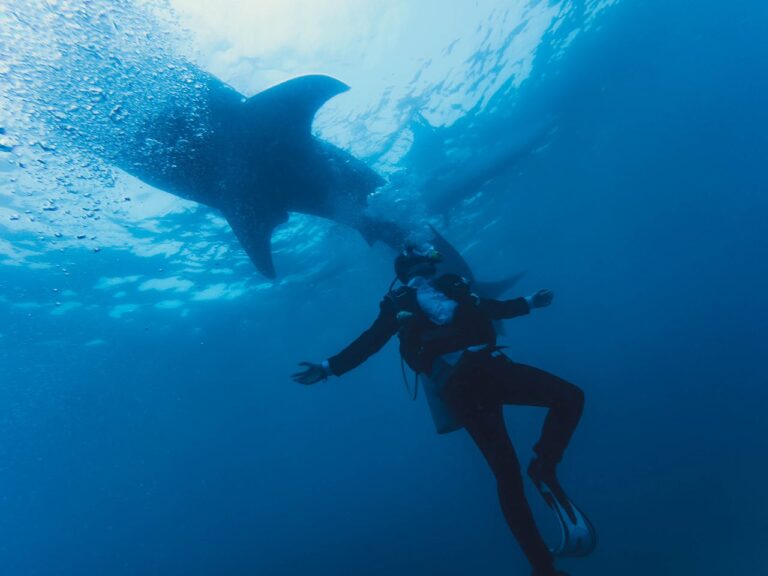When you think of sharks, what’s the first thing that pops into your mind? If it’s something along the lines of “terrifying killing machines,” you’re far from alone—but also only half-right. Thanks to Hollywood hype and sensationalized headlines, sharks have been cast as villains in a narrative that doesn’t entirely hold water.
The truth? Sharks are more than just apex predators; they’re essential players in the underwater symphony that keeps our oceans balanced and thriving. From their evolutionary brilliance to their ecological importance, sharks deserve more love and a little less Jaws-themed judgment. This post dives into their misunderstood role, their diversity, and why protecting them is crucial for marine ecosystems—and us.
Types of Sharks: Diversity in the Depths
Okay, so not all sharks are the toothy, 15-foot giants you see on Discovery Channel’s “Shark Week.” With over 500 species catalogued, sharks range from the hulking, plankton-sifting whale shark to the sleek and iconic great white shark, right down to the hammerhead with its unmistakable, alien-like head structure.
- Whale Sharks: Friendly giants. Imagine a tank the size of a bus, endlessly filtering plankton and tiny fish through its massive jaws. They’re harmless—it’s their sheer size that makes them awe-inspiring.
- Great White Sharks: The misunderstood superstar of the shark world. It’s not their fault movies cast them as villains. These sharks are critical in controlling prey populations, and keeping the marine ecosystem balanced.
- Hammerhead Sharks: These oddballs use their distinctively shaped heads to scan the seabed for prey. Plus, their extra-wide eyes give them a (literally) unique perspective on life.
These incredible species are just a small sample of the fascinating characters roaming beneath the waves. Each one plays its role, contributing to the vast and dynamic marine biodiversity we depend on.
The Role of Sharks in the Ecosystem: Beyond the Apex Predator
Here’s the thing about sharks—they’re not optional. Remove them, and the entire ocean starts to fall apart. Sounds dramatic? It is.
Sharks sit at the tippy top of the food chain. This means they keep fish populations from exploding out of control, which in turn prevents overgrazing of seagrass beds and coral reefs. No sharks? Algae would take over reefs, disrupting entire underwater ecosystems—a ripple effect with consequences for species (humans included) thousands of miles away.
The term for this is a trophic cascade, and it’s as serious as it sounds. Sharks are the gatekeepers of balanced marine life. Removing a single predator can have mind-bending impacts on an entire ecosystem. Their absence has already started wreaking havoc in areas like the Gulf of Mexico, where unchecked prey populations are significantly altering marine habitats.
Threats to Shark Populations: Human Impact and Conservation Challenges
Here’s the tragic part of the story—sharks are in big trouble. And, spoiler alert, we’re largely to blame.
- Overfishing: Millions of sharks are caught every year as bycatch or for specific fishing demands like shark fin soup. Shark fins are often sliced off, and the rest of the animal is discarded—alive. Yeah, it’s as brutal as it sounds.
- Habitat Destruction: Coral bleaching, pollution, and coastal development are destroying habitats that sharks (and countless marine creatures) call home. When their homes vanish, so do they.
- Climate Change: Changes in ocean temperatures and acidity levels are throwing the balance of entire marine ecosystems off-kilter, further stressing shark populations.
Right now, nearly one-third of all shark species are threatened with extinction. Conservation efforts exist, but with inadequate enforcement and insufficient funding, success is limited.
Changing Perceptions: The Power of Education and Ecotourism
Want to know what’s keeping the fight for shark survival alive? Education and ecotourism. Turns out, meeting sharks is one of the best ways to love them.
Take Fiji, for example. This tiny Pacific nation has pioneering shark-diving initiatives that not only inspire awe but also funnel tourism revenue into shark conservation programs. These programs have, in turn, strengthened efforts to protect marine areas and limit overfishing in crucial habitats.
Similarly, documentaries like Sharkwater Extinction and My Octopus Teacher are flipping the script, showing sharks as the vulnerable creatures they are. When people understand a species’ importance (and stop viewing it through fear-tinted lenses), attitudes start to shift.
Education isn’t just for tourists—it’s for locals too. Many communities living near vital shark habitats rely heavily on the ocean for their livelihoods. Conservation efforts that educate and empower locals often see the best results, because they’re built around shared benefits.
What You Can Do: Supporting Shark Conservation
Here’s the part where I give you homework—but don’t worry, it’s the good kind. If you’re as in love with sharks as I hope you are by now, here are some tangible ways to help protect these underwater rockstars:
- Support Shark-Friendly Ecotourism: Travel with tour companies that promote ethical shark-diving activities. Your visit can directly fund conservation efforts.
- Reduce Plastic Use: Less plastic waste means less ocean pollution. Sharks’ homes get cleaner.
- Donate or Volunteer: Organizations like the Shark Trust or WildAid rely on public support to fund their impactful work.
- Advocate: Use your voice—whether it’s sharing this post, signing petitions, or simply correcting a friend the next time they call sharks “killers.”
Change starts with small actions, and every bit helps. Whether it’s a donation of time, money, or even just spreading awareness, your support contributes to broader conservation success.
Swimming Forward Together
The bottom line? Sharks are way cooler than they’re often portrayed. From their unmatched diversity to their crucial role in ocean health, these creatures deserve admiration, not fear.
But loving sharks isn’t just about marvelling at how awesome they are—it’s about understanding how intricately tied their survival is to ours. The health of our oceans bleeds into everything from the air we breathe to the climate we experience.
Sharks are essential, and they’re also endangered. If we wait too long to act, we might one day tell stories of how sharks used to dominate our oceans—a thrilling, jaw-dropping species lost to human indifference.
Take what you’ve learned here, share it, and be a voice for sharks. And the next time you see a fin cutting through the waves, try trading fear for reverence.





















0 Comments